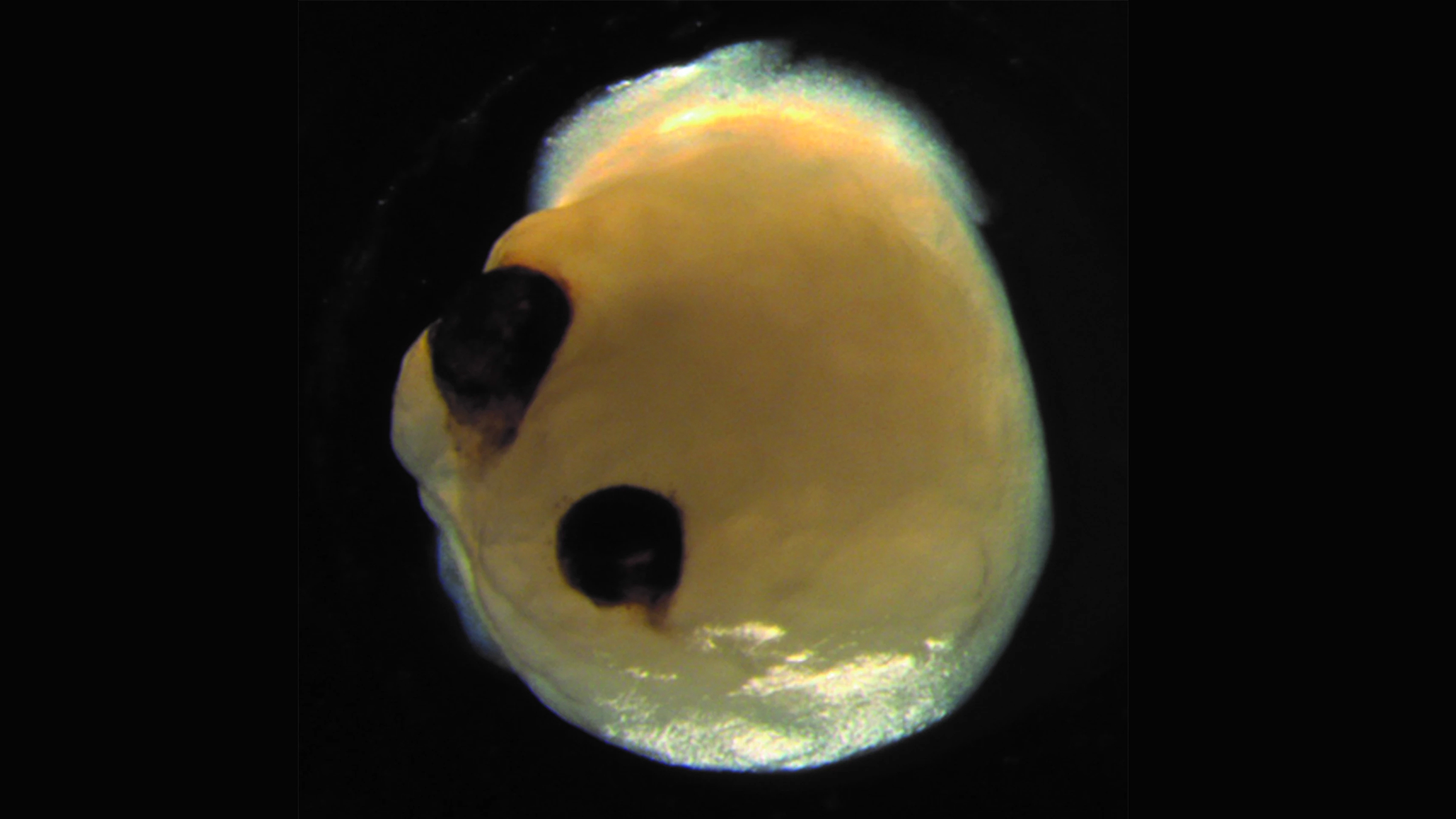Lab-grown minibrains will be used as 'biological hardware' to create new biocomputers, scientists propose
A new proposal suggests using stem cell-derived 'minibrains' to create brand-new biocomputers. Such 'organoid computers' could be far off, but ethical questions abound.

Lab-grown "minibrains" could someday be linked together to act as powerful and efficient biocomputers, scientists have suggested.
In a proposal published Feb 28. in the journal Frontiers in Science, a multidisciplinary group of researchers outlined their plans to transform 3D clumps of human brain cells, called brain organoids, into biological hardware capable of advanced computational tasks — a field they have named "organoid intelligence" (OI).
"While silicon-based computers are certainly better with numbers, brains are better at learning," corresponding author John Hartung, a professor of microbiology at John Hopkins University, said in a statement. For example, AlphaGo — the AI that beat the world's top Go player in 2017 — "was trained on data from 160,000 games. A person would have to play five hours a day for more than 175 years to experience these many games."
Related: How does the brain store memories?
Brain organoids are small, lab dish-dwelling clumps of stem cells that have been cajoled into 3D structures that mimic the structure and function of the human brain, but are simpler than the full-size organ. First produced in 2013 to investigate microcephaly, a condition in which an infant's head is much smaller than average, the brain blobs have since been used to study diseases such as Alzheimer's, Parkinson's and Zika and to repair injured rat brains with well-placed grafts. And recently, they've even been taught to play the video game Pong.
As organoids share many of the cell types that enable our own brains to acquire and store information, the researchers say that the brain blobs are uniquely suited for computational tasks that require them to learn quickly and without much energy expenditure, before storing the information away in compact neuronal connections.
"Brains have an amazing capacity to store information, estimated at 2,500TB [terabytes]," Hartung said. "We're reaching the physical limits of silicon computers because we cannot pack more transistors into a tiny chip. But the brain is wired completely differently. With about 100 billion neurons linked through more than 1,015 connection points. It's an enormous power difference compared to our current technology," he said.
Sign up for the Live Science daily newsletter now
Get the world’s most fascinating discoveries delivered straight to your inbox.
To build the organoid biocomputers they envision, the researchers wrote that they are adapting tools from bioengineering and machine learning to stimulate and record neural activity within brain organoids. This will not only enable them to send and receive information from individual organoids, but to yoke them together, creating complex networks of brain clumps that could support more powerful computations.
However, to build sophisticated biocomputers, researchers will first have to cross an ethical minefield, the report authors acknowledged. Until now, the moral implications of building tiny mimics of the human brain have been constrained by the fact that typical brain organoids contain a small number of cells with limited computational power. But to grow organoids fit for computers, the scientists say they will need to scale them up from 50,000 neurons to 10 million.
The scientists believe that as their computational abilities grow, the connected organoids, while not achieving outright sentience, would likely attain some form of intelligence. This raises the question of what consciousness is and whether these organoids would ever be said to have it.
"As of today, we know these organoids can mimic the cortical development neural oscillatory behavior" — meaning the brain waves — "of a preterm baby to a postnatal stage," co-author Alysson Muotri, a neuroscientist at the University of California, San Diego, told Live Science in an email. "Moreover, we also know that under anesthesia, these oscillations fade out, similar to a human brain."
"To situate this in a spectrum of consciousness, we are doing some stimulation to collect a PCI (perturbational complexity index), a complexity index used by some to measure the eventual consciousness spectrum on these organoids," Muotri said. PCI is a metric that some experts have proposed to measure an organism or entity's level of consciousness.
But measuring this intelligence if or when it arises could prove tricky. It is plausible that a human neural organoid could one day be created that would act like a brain and have some intelligence, Hank Greely, a professor of law and genetics at Stanford University who specializes in ethical, legal and social issues arising from advances in the biosciences, told Live Science, but even then we only have a very limited knowledge of what generates consciousness or intelligence in our own brains.
"The number of neurons connected together does not make something intelligent. If I piled a million pieces of cut stone together, I would not necessarily have the Chartres Cathedral; I'd probably have just a pile of cut stones. It is the architecture, the connections, the environment of the brain cells that create an actual brain," Greely said. "Organoids are definitely not 'mini-brains'. They are not organized the way brains are, they do not contain the same large number of cell types that brains have, and they aren't communicating constantly with a body through inputs and outputs."
More broadly, the team will consult teams of scientists, ethicists and members of the public to assess any ethical questions that arise as their research evolves, Hartung said.

Ben Turner is a U.K. based staff writer at Live Science. He covers physics and astronomy, among other topics like tech and climate change. He graduated from University College London with a degree in particle physics before training as a journalist. When he's not writing, Ben enjoys reading literature, playing the guitar and embarrassing himself with chess.









